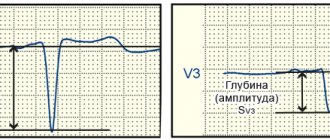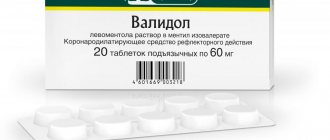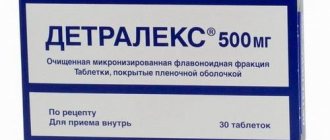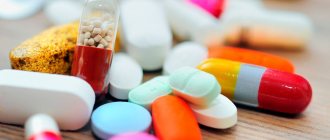At the same time, very often the intake is carried out without observing important rules, and therefore the medications turn out to be useless, or even harmful. Talks about important admission rules pharmacist with 50 years of experience in pharmacy Irina Dubonosova:
— My colleagues talked about a customer who used rectal suppositories orally, in other words, washed them down with water. And he came to the pharmacy with a complaint: it didn’t help, they say. And another tried to insert a potency pill into an organ that needed help. An erection never happened, but I almost had to see a surgeon. Perhaps both cases are nothing more than an anecdote, but when purchasing medications, you must always read the instructions before use and follow them strictly.
Related article: Inexpensive copies. What is the difference between original medicines and generics?
Chew or suck?
Be sure to follow the prescribed method of use, otherwise there is a high risk that the active substance simply will not reach its destination. If the instructions for the drug say: “chewable tablet” - chew, “sucking” - suck, it says “put under the tongue” - put it. If it is not written: “bite”, “chew”, then be sure to swallow it whole with water. As a last resort, crush before swallowing, but only if the tablet is not coated. Otherwise, grinding will lead to poor absorption of the medication.
If there is no dividing line on the tablet, there is no need to break it - this means that a half dose is not intended for use. Do not pour out or pour out the contents of the tablet from the capsule - the medicine is specially placed in this form and not in any other form. This way it will be absorbed better and safer.
Follow your doctor's orders
A banal obvious rule, which, however, not everyone follows. First of all, you should not self-medicate. It’s difficult to say which is worse: when a hypertensive patient relies only on traditional methods, or when he begins to select pills for himself (often on the advice of friends).
Yes, traditional medicine can help relieve some symptoms, perhaps even lower blood pressure. But it is unlikely that she is able to keep her blood pressure under control all the time. You can use traditional methods as an addition to the main treatment, and only under the supervision of a doctor.
As mentioned above, today there are many drugs to combat arterial hypertension. But the best, universal one is not among them. Different medications work differently and affect different processes in the body. In order to understand which drugs will be optimal in this case, you need to understand what is happening in the patient’s body. And only a doctor can do this correctly.
Shouldn't you take more than two?
It is better not to take several different medications at the same time. Especially if they are prescribed by different specialists. Of course, it is better to consult a doctor when prescribing a new medication, telling him which medications are already prescribed to you.
If, nevertheless, taking different tablets turns out to be necessary, take them not one after another, but with a break of 30-60 minutes. For example: antibiotics should not be taken with antipyretic, sleeping pills, or antihistamines. Iron supplements cannot be combined with antacids (Almagel, Maalox, Rennie, etc.). Oral contraceptives (Marvelon, non-ovlon, Janine, Tri-mercy, etc.) are incompatible with analgin, antibiotics and sulfonamides (streptocide, biseptol). Do not take papaverine and aspirin, vitamin C and penicillin, dibazole and tetracycline at the same time.
When treating with enterosorbents (activated carbon, polysorb, smecta), the break between them and other medications (any!) should be at least 2 hours.
If you are in doubt about how to take your medications correctly, try to get information from different sources.
Article on the topic
Rules of frugality: how to save money when buying medicines?
Do not change your treatment regimen on your own
Medicines prescribed by a doctor do not always help keep blood pressure at optimal levels. Even if you take your pills regularly, your blood pressure monitor may still periodically show high numbers, and you may experience headaches, dizziness, and other symptoms.
In such cases, it is usually necessary to increase the doses of drugs or even replace them with others. But under no circumstances should you do this yourself. Visit a doctor, tell us about the problem, show the results of your latest blood pressure measurements. Sometimes it takes quite a long time to select the optimal medications and change medications several times. If the treatment is carried out effectively, your blood pressure should not increase and, moreover, “jump” greatly.
Any medicine can cause side effects. If the drug does not suit you, do not stop treatment. Visit your doctor. It is advisable to ask your doctor in advance about what symptoms you may experience while taking prescribed medications, and in which cases you should immediately go to the hospital.
An experienced, competent doctor will be able to select a combination of drugs that will effectively keep blood pressure at optimal levels. But the quality of treatment depends not only on the doctor. The patient must take an active part: strictly adhere to the appointments, ask more questions, provide all the information that may be useful, and immediately report any changes in their well-being.
Drink or wait?
Consider your health status, age, occupation, and even gender when taking certain medications. Children, pregnant women, elderly people and drivers need to be especially careful when taking medications. Medicines such as erythromycin, verapamil, diazepam act less effectively on women than on men, but anaprilin and tazepam do the opposite.
Remember that there are many drugs that have the same principle of action, but have different names. This is due to the presence of numerous generics for most drugs. For example, paracetamol is sold as Panadol, Tylenol, Efferalgan, Aldolor, Milistane. Diclofenac - like dicloran, bioran, voltaren, etc. Tavegil - like clemastine, clonidine - like hemitone and catapresan. These are all analogue drugs.
Click to enlarge
Person's disposition
For some medications, the position in which you take them is important. For example, capsules that have a gelatin shell are recommended to be taken while standing with plenty of water to prevent the shell from sticking to the wall of the esophagus. And, here are some medications that affect blood pressure that are recommended to be taken while lying down.
As you can see, there are a lot of nuances that need to be taken into account when using medications. The cause of a long-term illness or the appearance of negative reactions in the body may be the incorrect use of medication. Be sure to read the instructions and consult with specialists!
It is important to know
Tablets in gelatin capsules must be taken standing or sitting and washed down with at least 100 ml of water, otherwise the gelatin capsule may stick to the wall of the esophagus.
It is better to take medications to lower blood pressure while lying down.
It is better to first drip the heart drops onto a piece of sugar.
Article on the topic
"Payment for progress." How do medications threaten your liver? Cough tablets like mucaltin work more effectively if they are dissolved in a small amount of slightly sweet water and taken an hour before meals.
Caffeine, theobromine and theophylline can be washed down with sour juices.
Oral tetracycline preparations should be taken while standing and washed down with a glass of water.
Most multivitamins are absorbed regardless of meal time, but it is best not to take them with meals.
When taking antipyretic medications, try not to eat a lot of dairy and plant foods, but temporarily switch to meat products.
Before, after or during meals?
For some medications, taking them exactly as scheduled is very important.
If the medicine is prescribed to be taken, say, “30 minutes before meals,” this means that the patient will not eat for some time before using the drug and for 30 minutes after use. The medicine should go into an empty stomach, where it will not be interfered with by food particles.
With the “during meals” option, everything is more or less clear; it is only important to check with your doctor how much food should be consumed while taking the medicine.
The point “after meals” implies taking the drug after a certain amount of food, so that the medicine does not irritate the gastric mucosa or helps normalize digestion.
Please note that if the instructions do not specify the time of administration, the drug is taken on an empty stomach.
Bad habits
Alcohol enhances the effect of drugs containing paracetamol and antihypertensive drugs - if you take phenobarbital and drink it with alcohol, there is a risk of dying from respiratory arrest.
Alcoholic drinks combined with aspirin can cause stomach ulcers and stomach bleeding.
A cocktail of alcohol with antidepressants, sleeping pills or antiallergic drugs enhances the calming effect of these drugs, and a person who takes this mixture greatly risks not only his health, but also the lives of others - for example, if he gets behind the wheel in this state.
By the way
The most unpredictable drugs Antibiotics; many antiallergic and antifungal agents; sleeping pills (especially oxazepam and diazepam); antidepressants (especially tricyclics and from the group of MAO inhibitors); paracetamol; statins; cimetidine, omeprazole and other so-called. proton pump inhibitors; cyclosporine; cisapride; warfarin. Alcohol mixed with nitroglycerin leads to a sharp decrease in blood pressure, which can lead to fainting.
Insulin and other antidiabetic drugs in combination with alcoholic beverages severely lower blood sugar, which can also cause fainting.
Heart rhythm disturbances can occur when drinking alcohol simultaneously with diuretics and digoxin, as it provokes a change in potassium balance.
Nicotine makes treatment with psychotropic, cardiovascular drugs, pulmonary inhalers less effective and even reduces the effect of birth control pills.
Make a list and schedule for taking your prescribed medications
Anti-high blood pressure medications should be taken regularly, according to the regimen prescribed by the doctor. Many people miss appointments due to forgetfulness, because they did not have time to buy the finished medicine in time, because they were out of the house and did not take a “travel first aid kit” with them.
In order not to forget anything, get a special notebook and write in it:
- The names of all medications that were prescribed to you, including alternative and commercial names.
- Doses, time and frequency of administration.
It is helpful to keep a diary in which you note each day which medications you need to take and at what time. Set reminders on your smartphone. Place brightly colored stickers in visible places. If you leave home for a long time, take your medications with you. Remember: for treatment to be effective, it is not enough to prescribe the drugs correctly; they also need to be taken conscientiously. This depends not only on your doctor, but also on you.
Taking antihypertensive drugs before bed is better at reducing cardiovascular risk
Goals
To test whether taking antihypertensive medications at bedtime provides a greater reduction in cardiovascular risk compared with waking up.
Introduction
Data from many prospective clinical studies indicate improvements in blood pressure (BP) during sleep and the formation of a more physiological pattern of diurnal blood pressure fluctuations (dipping) when medications for the treatment of hypertension are taken before bedtime rather than upon awakening. Side effects do not increase. Such differences are due to the influence of circadian rhythms both on the pharmacokinetics and pharmacodynamics of medications, and on the mechanisms of blood pressure regulation. For example, the peak activity of the renin-angiotensin-aldosterone system (RAAS) occurs during sleep. Accordingly, a single dose of drugs that block angiotensin-II receptors and ACE inhibitors before bedtime, as well as combinations of these drugs with calcium channel blockers and diuretics, leads to a significantly greater reduction in blood pressure during sleep without reducing the therapeutic effect during the day.
Controlling blood pressure during sleep through proper timing of medications is clinically important. Results from numerous independent prospective studies and meta-analyses indicate that mean sleep BP measured by ambulatory BP monitoring is a significantly more accurate predictor of cardiovascular risk than daytime measurements, ambulatory BP monitoring, or 24-hour mean BP. The most important results from studies involving periodic assessment of BP during follow-up support the therapeutic effect of lowering mean systolic BP (SBP) during sleep. The emergence of a physiological pattern of diurnal blood pressure fluctuations (dipping) reduces the risk of cardiovascular disease, regardless of treatment-induced changes in blood pressure measured in the doctor's office and/or while awake.
Despite growing evidence of the effect of timing of hypertension medications on BP, particularly during sleep, studies examining long-term effects, including the Heart Outcomes Prevention Evaluation (HOPE), specifically assessed the effect of taking antihypertensive medications in the evening/before bed on reducing the risk of cardiovascular events. vascular diseases. However, these studies were not compared with morning dosing.
The Monitorización Ambulatoria para Predicción de Eventos Cardiovasculares (MAPEC—Ambulatory Blood Pressure Monitoring to Predict Cardiovascular Risk) study is the first currently known prospective randomized trial specifically designed to test whether BP and the risk of cardiovascular events improve with regularly taking antihypertensive medications before bed, compared with taking them after waking up. After a median follow-up of 5.6 years, there was a significant reduction in sleep BP and a lower incidence of cardiovascular disease. These data, based on a relatively small group of 2156 patients with hypertension, await confirmation in a primary care clinical setting.
Project Hygia is a research network designed to make ambulatory blood pressure monitoring a routine diagnostic procedure to determine what plays a role in hypertension treatment, response to treatment, and cardiovascular risk.
Methods and results
In this multicenter, controlled, prospective study, 19,084 patients with hypertension (10,614 men/8470 women, age 60.5 ± 13.7 years) were assigned (1:1) to take ≥1 daily dose of hypertension medications at bedtime (n = 9552 ) or take medications upon awakening (n = 9532). At each scheduled clinic visit (at least once a year) throughout the observation period, ambulatory blood pressure monitoring was performed for 48 hours. During 6.3 years of follow-up, 1752 participants had a primary CVD outcome (CVD death, myocardial infarction, coronary revascularization, heart failure, or stroke). Patients who took the medication before bed compared with those who took the medication after waking up had a significantly lower risk ratio—adjusted for age, sex, type 2 diabetes, chronic kidney disease, smoking, HDL cholesterol, and sleep systolic blood pressure , the relative reduction in systolic blood pressure during sleep and previous cardiovascular events—the primary CVD outcome [0.55 (95% confidence interval (CI) 0.50–0.61), P <0.001] and each of its individual components ( P <0.001 in all cases), i.e., cardiovascular death [0.44 (0.34–0.56)], myocardial infarction [0.66 (0.52–0.84)], coronary revascularization [0.60 (0.47–0.75)], heart failure [0.58 (0.49–0.70)], and stroke [0.51 (0.41–0.63)].
Conclusion
If patients with hypertension who are prescribed ≥1 antihypertensive drugs regularly take them before bedtime, and not after waking up, the condition improves: there is a more pronounced decrease in blood pressure during sleep (dipping). In most cases, the number of major cardiovascular complications is significantly reduced. .
Figure 1. Kaplan-Meier cumulative hazard curves for cardiovascular disease outcomes by medication regimen (after awakening or before sleep).
(A) Cardiovascular disease outcome: total mortality from cardiovascular disease, myocardial infarction, coronary revascularization, heart failure, and stroke; log series test: 140.1, P < 0.001. (B) Total incidence of cardiovascular disease: total mortality from cardiovascular disease, myocardial infarction, coronary revascularization, heart failure, stroke, angina, peripheral arterial disease, and transient ischemic attack; log series test: 174.0, P < 0.001.








